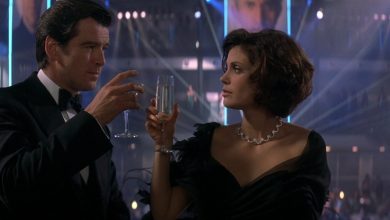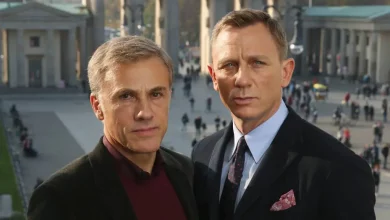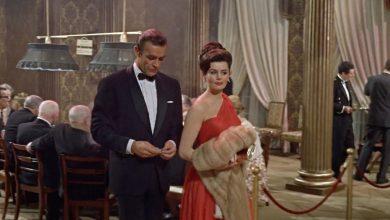Why Did George Lazenby Only Make One James Bond Movie? Unraveling the Mystery

The enigmatic story of George Lazenby’s single James Bond movie has captivated fans and film enthusiasts for decades. How did an unknown Australian actor come to portray the iconic British spy in “On Her Majesty’s Secret Service” and then leave the franchise after just one film? In this article, we will delve into the intriguing journey of George Lazenby as James Bond, exploring the reasons behind his departure and the impact it had on the Bond series. From the challenges he faced to the legacy he left behind, this article aims to shed light on this unique chapter in Bond history.
Key Takeaways
- George Lazenby’s departure from the James Bond franchise after one film remains a fascinating topic, leaving fans curious about the reasons behind his decision.
- Factors contributing to Lazenby’s departure include his inexperience as an actor, the changing cultural landscape of the late 1960s, his reluctance to be typecast, and contractual disputes.
- Lazenby’s portrayal of Bond brought a new level of emotional depth and vulnerability to the character, challenging the traditional Bond archetype.
- “On Her Majesty’s Secret Service” is now regarded as one of the finest entries in the Bond series, with Lazenby’s performance earning praise for its portrayal of Bond’s humanity.
George Lazenby and “On Her Majesty’s Secret Service”
George Lazenby: A Brief Background
Before we delve into the reasons behind George Lazenby’s single Bond film, let’s briefly explore the actor’s background. Born on September 5, 1939, in Goulburn, New South Wales, Australia, Lazenby began his career as a model before landing the coveted role of James Bond.
The Making of “On Her Majesty’s Secret Service”
“On Her Majesty’s Secret Service” marked Lazenby’s debut as James Bond and was the sixth installment in the long-running film series. Released in 1969, the movie was based on Ian Fleming’s novel of the same name and featured an intricate plot involving Bond’s pursuit of the sinister Blofeld.
The Reasons Behind Lazenby’s Departure
- Lazenby’s Inexperience and Pressure
One of the primary factors contributing to Lazenby’s departure from the Bond franchise was his lack of acting experience. Prior to “On Her Majesty’s Secret Service,” Lazenby had no substantial acting credits to his name. The immense pressure of following in the footsteps of the charismatic Sean Connery, who had previously portrayed Bond, likely added to the strain Lazenby experienced during the production.
- The Changing Cultural Landscape
The late 1960s marked a time of significant cultural and social change, and the Bond franchise was not immune to these shifts. Audiences were increasingly embracing counterculture and anti-establishment movements, and the traditional suave and womanizing Bond character was beginning to lose its appeal. Lazenby’s portrayal of Bond, which deviated from Connery’s charismatic persona, may have struggled to resonate with the evolving preferences of the audience.
- Lazenby’s Reluctance to be Typecast
After the release of “On Her Majesty’s Secret Service,” Lazenby expressed a desire to break away from the Bond image and pursue other acting opportunities. He was concerned about being typecast and wanted to prove himself as a versatile actor beyond the confines of the suave secret agent role. This desire for artistic growth and diversification likely influenced his decision not to renew his contract for future Bond films.
- Contractual Disputes and Financial Disagreements
Reports suggest that contractual disputes and financial disagreements also played a part in Lazenby’s departure. Negotiations for a new contract for subsequent Bond films became protracted, and Lazenby felt he was not receiving adequate compensation for his work. These disagreements, combined with his aforementioned desire to explore other acting opportunities, led to his decision to step away from the franchise.
The Aftermath and Legacy
Following Lazenby’s departure from the Bond series, the role was handed back to Sean Connery for “Diamonds Are Forever.” While Lazenby’s decision to leave the franchise may have been met with disappointment at the time, his portrayal of Bond has gained appreciation over the years. “On Her Majesty’s Secret Service” is now considered one of the finest entries in the Bond series, with Lazenby’s performance often lauded for its emotional depth and vulnerability.
FAQ: Frequently Asked Questions
1. Why did George Lazenby only make one James Bond movie?
George Lazenby’s decision to make only one James Bond movie can be attributed to a combination of factors. Firstly, Lazenby’s relative inexperience as an actor, coupled with the immense pressure of following in the footsteps of the beloved Sean Connery, likely contributed to his departure. Additionally, the changing cultural landscape of the late 1960s, with the rise of counterculture and evolving audience preferences, played a role in the reception of Lazenby’s portrayal of Bond. Moreover, Lazenby’s desire to avoid typecasting and pursue diverse acting opportunities outside of the Bond franchise influenced his decision. Lastly, contractual disputes and financial disagreements further strained the relationship between Lazenby and the Bond producers, ultimately leading to his departure.
2. How did George Lazenby’s portrayal of James Bond differ from Sean Connery’s?
George Lazenby’s portrayal of James Bond differed significantly from Sean Connery’s interpretation. While Connery’s Bond was known for his suave and charismatic persona, Lazenby brought a more vulnerable and emotionally complex aspect to the character. Lazenby’s Bond showcased a depth of emotion, particularly in his romantic relationship with Tracy, played by Diana Rigg. This departure from the traditional Bond archetype added a new dimension to the character. Lazenby’s portrayal emphasized Bond’s humanity and explored his emotional vulnerabilities, providing a refreshing take on the iconic spy.
3. Did George Lazenby receive praise for his performance as James Bond?
Yes, George Lazenby received praise for his performance as James Bond in “On Her Majesty’s Secret Service.” Despite the initial skepticism surrounding his casting, Lazenby surprised audiences and critics with his portrayal. Many acknowledged his physicality and athleticism in action sequences, as well as his ability to convey the emotional depth of the character. Lazenby’s performance in the film’s dramatic moments, particularly during the tragic ending, garnered accolades for his ability to showcase Bond’s vulnerability and provide a more nuanced portrayal of the iconic spy.
4. How did audiences and critics react to “On Her Majesty’s Secret Service”?
The reaction to “On Her Majesty’s Secret Service” was mixed upon its initial release. Some fans and critics were disappointed by the absence of Sean Connery, and the film’s departure from the typical Bond formula. However, over the years, the movie has gained significant appreciation and is now regarded as one of the finest entries in the Bond franchise. Audiences have come to appreciate the emotional depth, engaging storyline, and Lazenby’s portrayal of Bond. The film’s tragic ending, in particular, has been praised for its impact and the way it deviated from the traditional Bond formula.
5. Did George Lazenby regret his decision to leave the Bond franchise?
George Lazenby has expressed mixed feelings about his decision to leave the Bond franchise. While he has acknowledged the missed opportunity for financial success and continued fame, Lazenby has also emphasized his desire for artistic growth and the pursuit of diverse acting roles. In interviews, he has mentioned that he felt limited by the Bond image and wanted to prove himself as a versatile actor beyond the iconic secret agent role. Despite any regrets, Lazenby’s decision has shaped his legacy and contributed to the unique history of the James Bond franchise.
6. How did the departure of George Lazenby impact the Bond series?
The departure of George Lazenby marked a significant turning point in the Bond series. After Lazenby’s departure, Sean Connery returned for one more film, “Diamonds Are Forever.” However, Connery’s return was intended to be temporary, leading to the introduction of Roger Moore as the new James Bond in subsequent films. Lazenby’s departure allowed the franchise to explore new directions and evolve in response to the changing cultural landscape of the time. It also demonstrated the longevity and adaptability of the Bond character, as different actors brought their own interpretations to the role over the years.
7. Did George Lazenby have a successful acting career after leaving the Bond franchise?
George Lazenby’s acting career did not reach the same heights after leaving the Bond franchise. While he did appear in several films and television shows, his decision to depart from Bond limited his mainstream success. Lazenby faced challenges in overcoming the typecasting associated with the iconic spy role. However, he continued to work in the entertainment industry, albeit in less high-profile projects. In recent years, Lazenby has embraced his Bond legacy and become a beloved figure among Bond fans, attending conventions and sharing anecdotes about his time as 007.
8. Who replaced George Lazenby as James Bond?
After George Lazenby’s departure, Sean Connery returned to portray James Bond in “Diamonds Are Forever.” However, Connery’s return was intended to be his final outing as the character. Following Connery’s departure, Roger Moore took over the role and starred in seven Bond films, becoming the longest-serving actor to portray the iconic spy. Moore’s portrayal brought a lighter, more humorous tone to the character, contrasting with Lazenby’s more emotionally-driven interpretation.
9. How did George Lazenby’s portrayal of Bond influence future actors in the role?
George Lazenby’s portrayal of Bond, although brief, had a lasting impact on future actors who stepped into the role. His more vulnerable and emotionally complex interpretation opened the door for subsequent Bond actors to explore different aspects of the character’s persona. Lazenby’s departure also highlighted the importance of the Bond franchise in launching and shaping the careers of actors, and the challenges they may face in navigating the legacy associated with the iconic spy.
10. Is there a chance George Lazenby could return as James Bond?
While it is highly unlikely that George Lazenby will return as James Bond, given the actor’s age and the passing of the torch to new actors in the franchise, never say never in the world of Bond. The producers have always been open to reinventing and surprising audiences, so it is not completely out of the realm of possibility. However, at this point, it seems more likely that Lazenby’s portrayal will remain a significant part of Bond’s history, with future actors taking up the mantle of the iconic spy.
Conclusion
George Lazenby’s journey as James Bond is a fascinating tale that showcases the complexities of the iconic spy franchise. Despite making only one Bond film, Lazenby’s portrayal left a lasting impact, with his performance in “On Her Majesty’s Secret Service” gaining recognition for its emotional depth and vulnerability. The factors that led to Lazenby’s departure, such as his inexperience, the evolving cultural landscape, and his desire for artistic growth, all played a role in shaping the course of Bond history.
While Lazenby’s decision to step away from the Bond role may have disappointed some at the time, it paved the way for new actors to take on the mantle of 007 and bring their own interpretations to the character. George Lazenby’s brief but significant contribution to the Bond series remains a testament to the enduring legacy and evolution of James Bond, a character that continues to captivate audiences across generations.









2 Comments